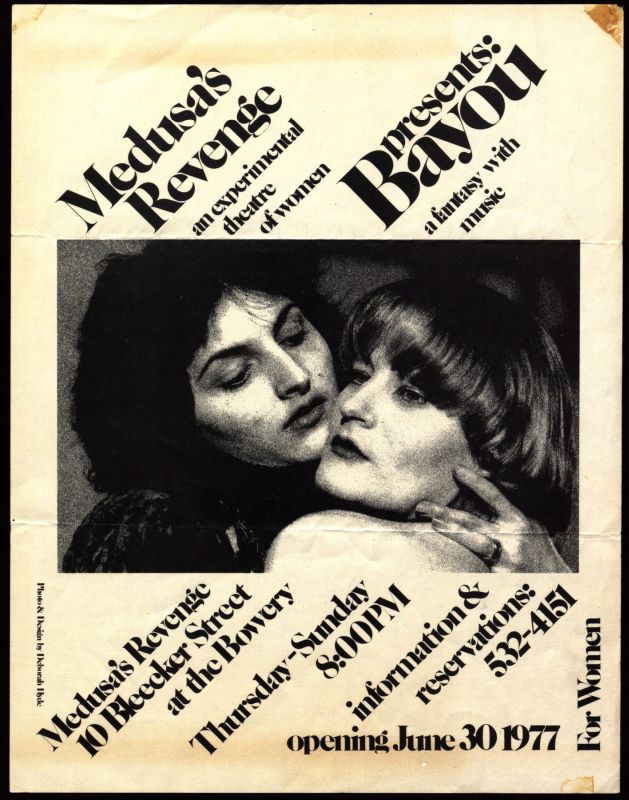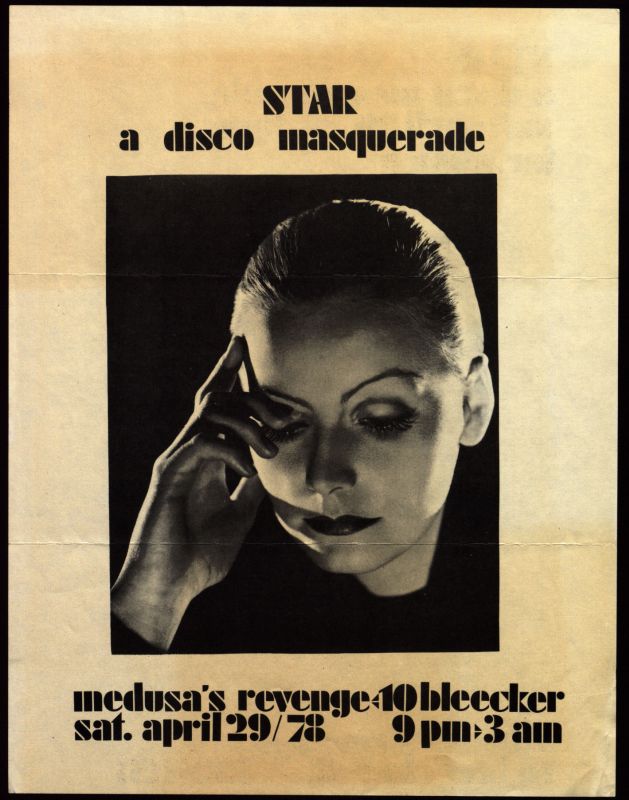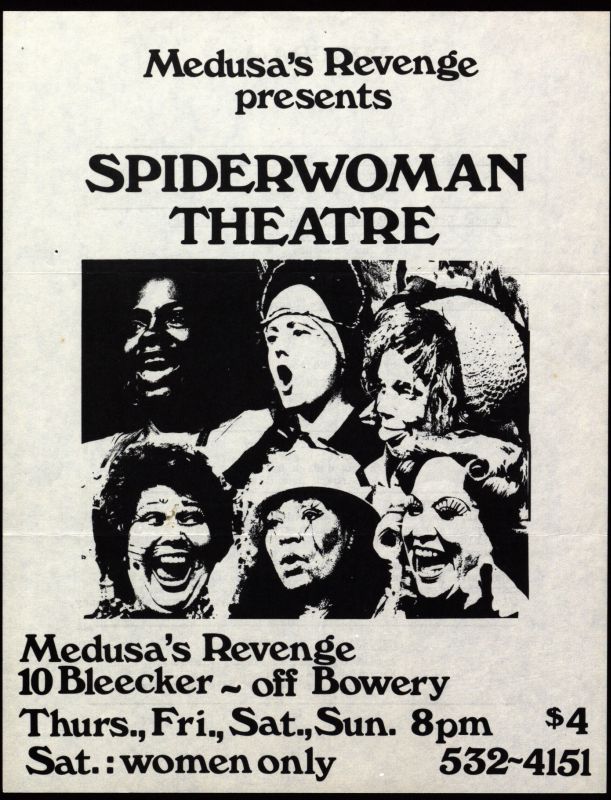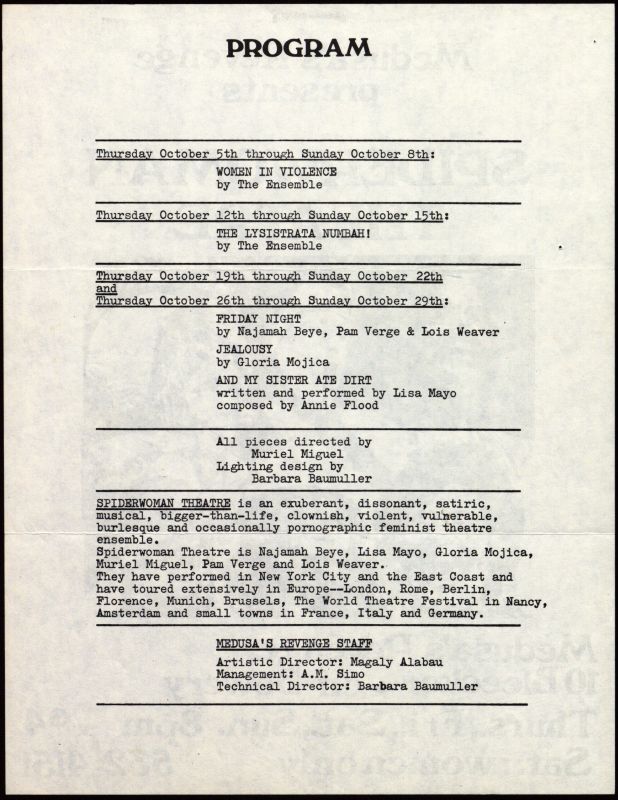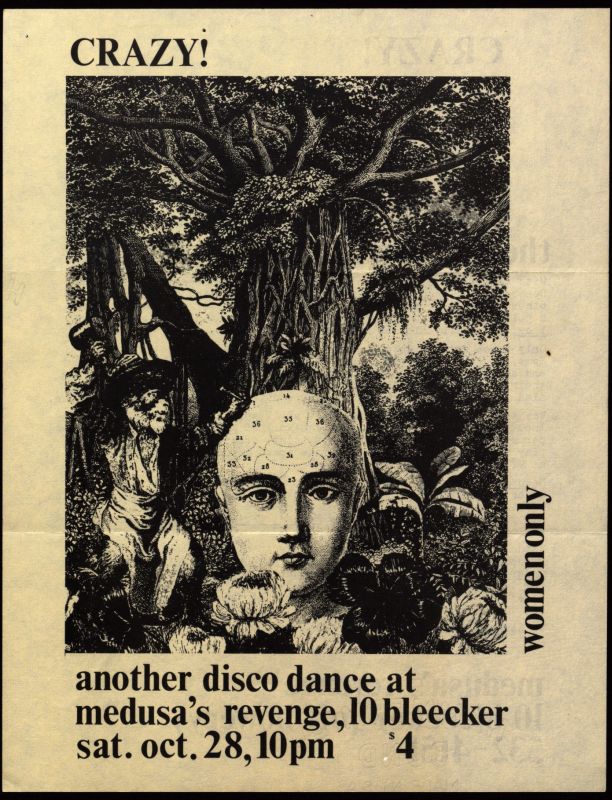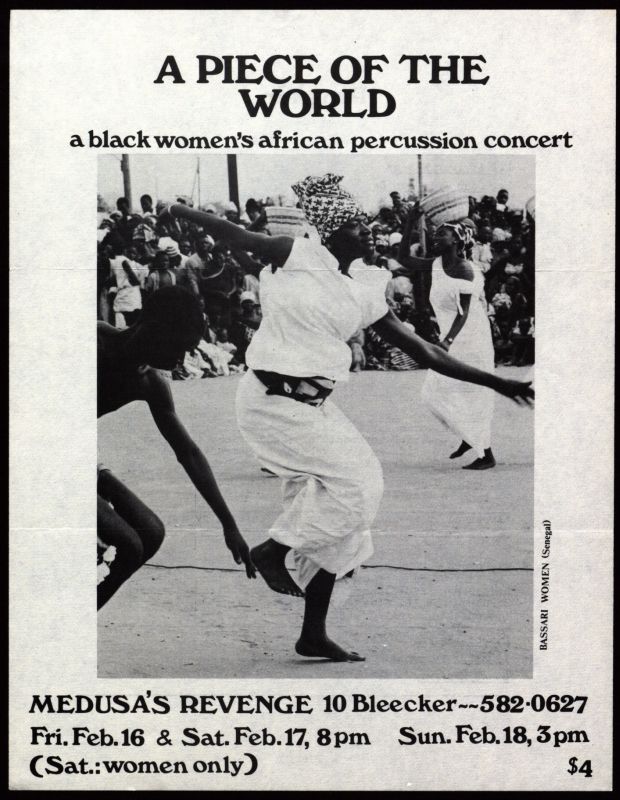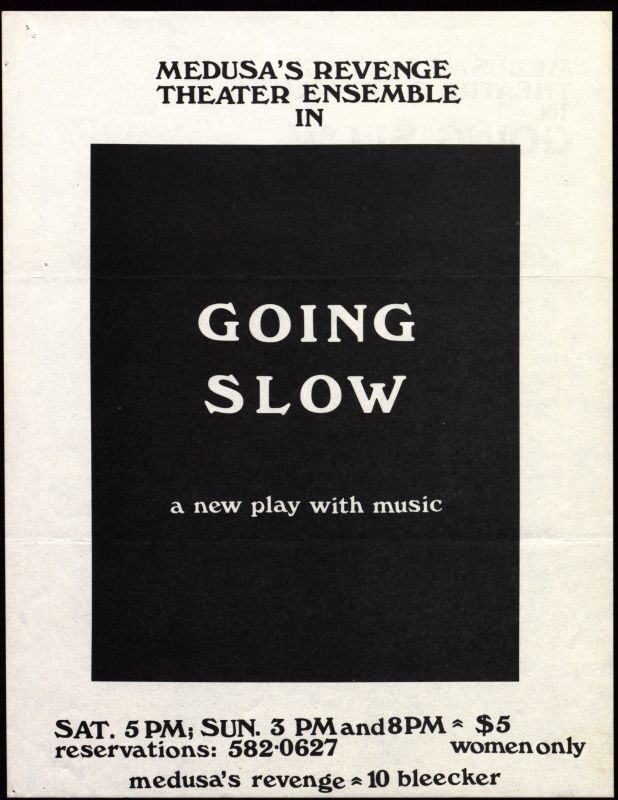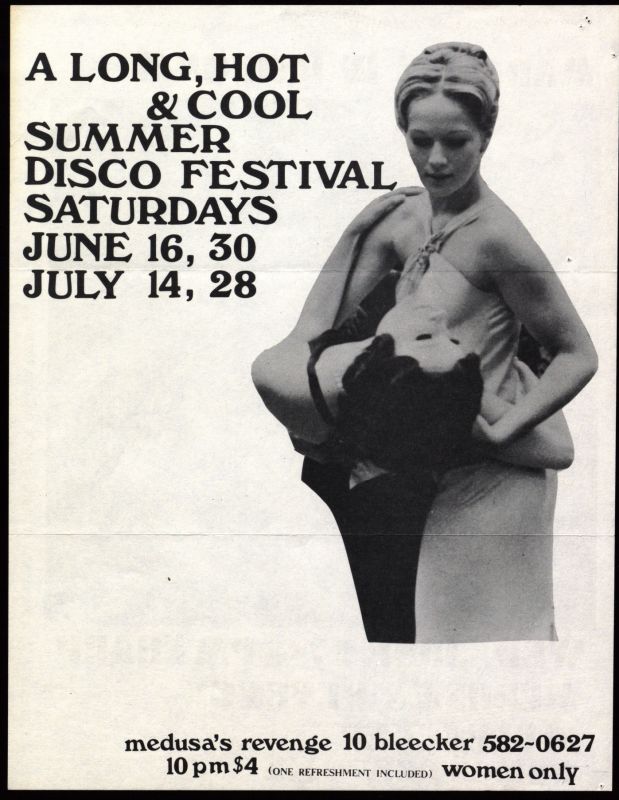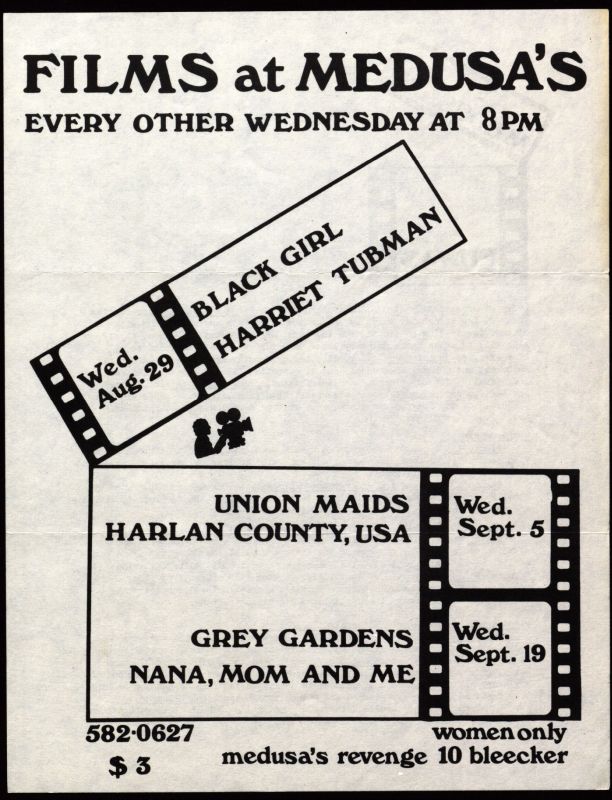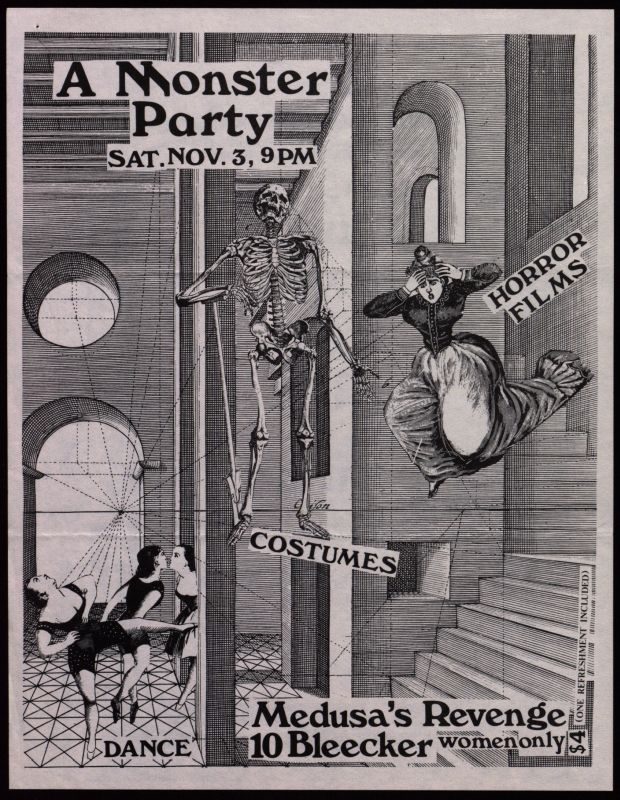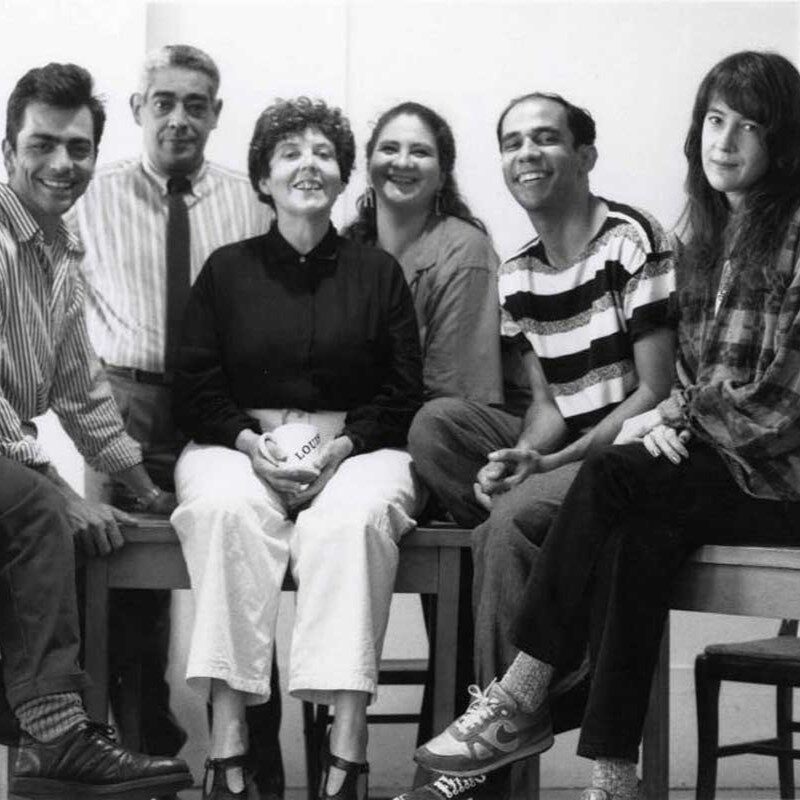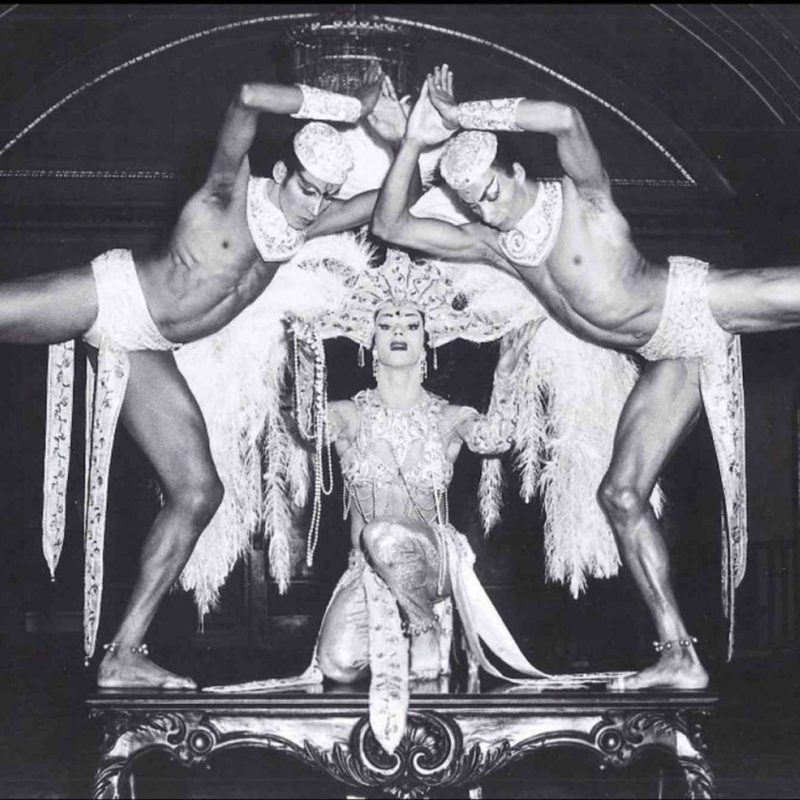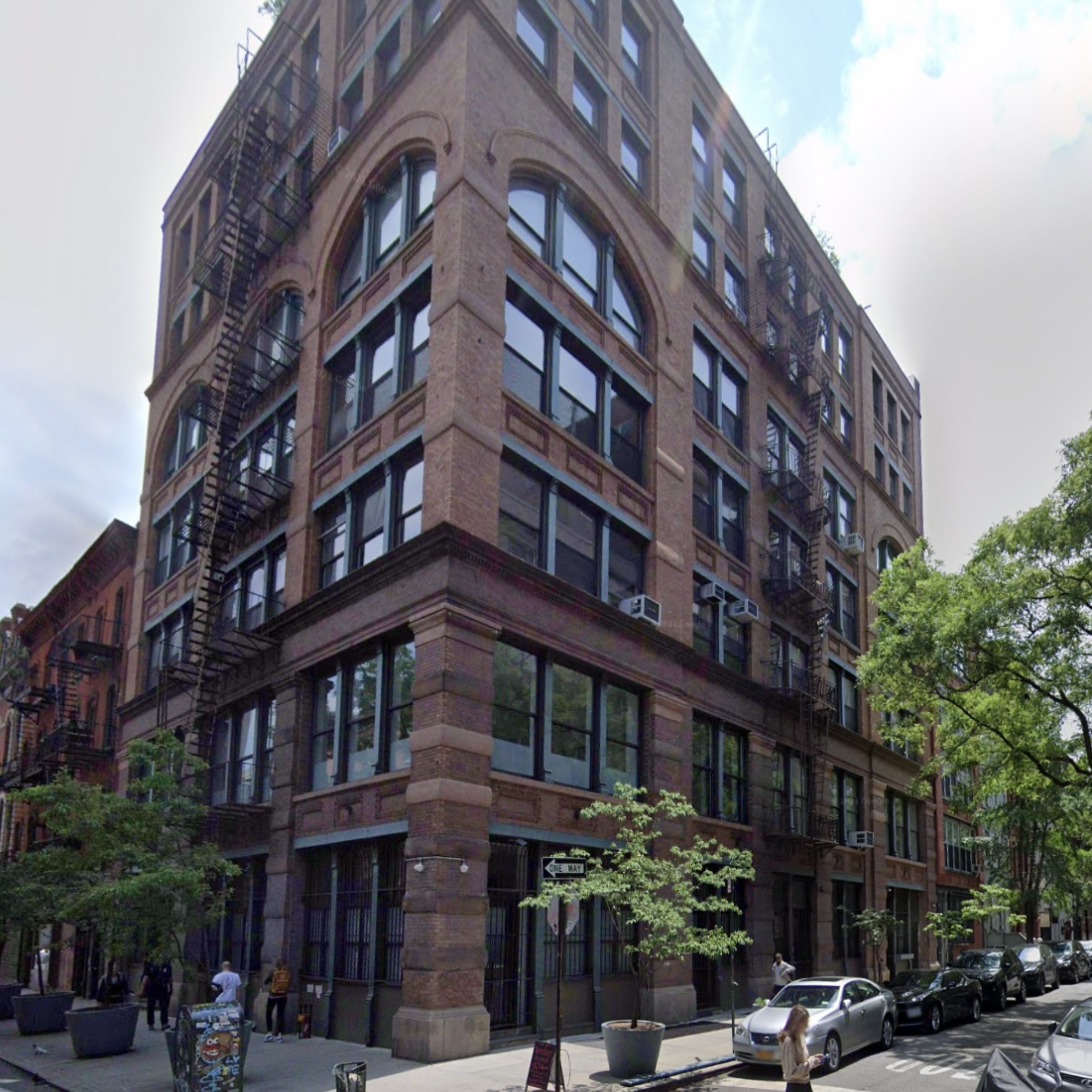
Medusa’s Revenge
overview
Medusa’s Revenge, the pioneering lesbian multicultural performance and community space, was founded by Cuban exiles Ana María Simo and Magali Alabau in 1976.
Located in the vast basement of this building until 1981, when it closed, the venue hosted several influential lesbian groups, including the Medusa’s Revenge Theater Ensemble, Spiderwoman Theater, and Flamboyant Ladies Theatre Company, and was particularly welcoming to women of color and working-class women.
History
In the 1970s, the lesbian community in New York City became more visible with spaces of their own, coinciding with the gay liberation and women’s liberation movements. While gay theater formed a decade earlier in Off-Off-Broadway venues, productions by, about, and for lesbians were sporadic. Activist, writer, and historian Sarah Schulman notes in her book, Stagestruck: Theater, AIDS, and the Marketing of Gay America (1998), the difficulties of finding lesbian-themed productions by an openly lesbian writer before Harry Outside (1975) by Corinne Jacker, staged at the Circle Repertory Company, and Fefu and Her Friends (1977) by María Irene Fornés. Even then, Schulman writes, “although each was sealed with a passionate kiss, both of these plays contained their lesbian content in subplots.”
The founding of Medusa’s Revenge by Cuban exiles Ana María Simo and Magali Alabau in 1976 was, therefore, groundbreaking. It is credited as the first explicitly lesbian experimental theater space in New York City. Alabau, who had been acting in Hispanic theater in the city and had also worked at La MaMa, had become frustrated with the limited roles for women and, according to Simo, “suggested the idea of the lesbian space and a theater where she could express herself.” Located in the 5,000-square-foot basement of 10 Bleecker Street, a block from the Bowery, Medusa’s Revenge featured a stage, dressing rooms, sound and lighting booths, and a bar.
Medusa’s Revenge is an experimental theatre of women dedicated to the creation of original plays, many of them with music, exploring a homo-esthetic sensibility.
The Medusa’s Revenge Theater Ensemble was the venue’s resident theater company. Alabau created and led the Ensemble’s workshop and directed two full-length original works: Bayou (1977), written by Simo and one of the Ensemble’s best-known plays, and Going Slow (1979). These plays, as with others there, were performed for women-only audiences, though general audiences were allowed on specific nights. One July 1977 performance of Bayou had an audience of about 800 women. The Encyclopedia of Lesbian and Gay Histories and Cultures later noted that Medusa’s Revenge was “less doctrinaire and more formally experimental and sexually explicit” than most lesbian and feminist theater of the period. Bayou, for example, “was a raucous piece about a lesbian bar, in which, among other things, two women courting each other danced erotically across a pool table.”
Medusa’s Revenge welcomed all women, particularly women of color and working-class women. A range of cultural and activist projects associated with artists of color there included the Spiderwoman Theater, founded by Muriel Miguel; the Salsa Soul Sisters, the nation’s oldest activist and community group for lesbians of color; Flamboyant Ladies Theatre Company, founded by Alexis De Veaux and Gwendolen Hardwick; and A Piece of the World, an African American women’s drum and dance ensemble founded and directed by master West African Djembe drummer Edwina Lee Tyler. The venue also hosted stand-up comedy and musical performances, film screenings organized by Simo, and Saturday night dyke theme parties, drawing several hundred women at a time. Women-only dances would sometimes follow theater performances.
Medusa’s Revenge closed in 1981, after a substantial rent increase. Its impact, however, was still felt in the downtown theater world and activist community. Artists Peggy Shaw and Lois Weaver, who had performed at Medusa’s Revenge, founded an influential women’s theater group in 1980 that moved into its first physical space, known as WOW Café Theatre, in 1982. That location’s first lighting instruments and dimmer packs were gifts from Medusa’s Revenge after its closure. Simo’s experience with Medusa’s Revenge inspired her to cofound the Lesbian Avengers, a direct-action group, in 1992.
Entry by Amanda Davis, project manager (January 2023), with thanks to Ana María Simo for providing preliminary text.
NOTE: Names above in bold indicate LGBT people.
Building Information
- Architect or Builder: John T. Williams
- Year Built: 1893-94
Sources
Bonnie Zimmerman and George Haggerty, eds., Encyclopedia of Lesbian and Gay Histories and Cultures (New York: Routledge, 1999), 769.
Catherine Davy, Lady Dicks and Lesbian Brothers: Staging the Unimaginable at the WOW Café Theatre (Ann Arbor: University of Michigan Press, 2010).
Medusa’s Revenge, “For Immediate Release,” October 1977, Medusa’s Revenge folder, Lesbian Herstory Archives, via Archives of Sexuality and Gender. [source of pull quote]
Medusa’s Revenge, research file, Lesbian Herstory Archives, via Archives of Sexuality and Gender.
Medusa’s Revenge, information compiled by Ana María Simo.
Sarah Schulman, Stagestruck: Theater, AIDS, and the Marketing of Gay America (Durham, NC: Duke University Press, 1998), 65.
Do you have more information about this site?
This project is enriched by your participation! Do you have your own images of this site? Or a story to share? Would you like to suggest a different historic site?
